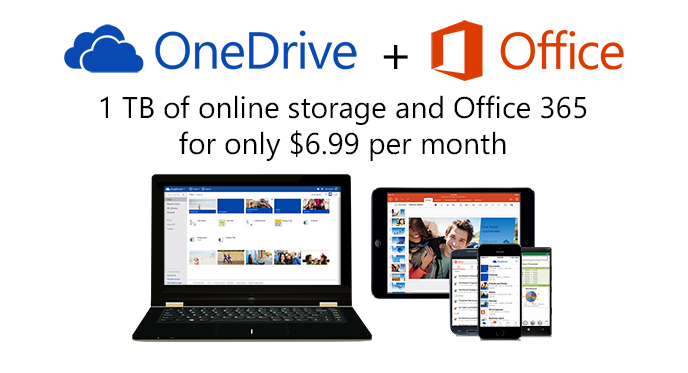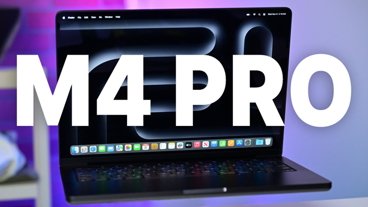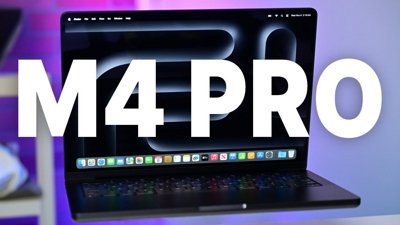The latest shot in the cloud storage wars came on Monday from Microsoft, which announced a restructuring of its OneDrive offering that will more than double users' base storage allowance, as the software giant reacts to recent price cuts from rivals Apple and Google.
Users will now start with 15 gigabytes of storage — up from 7 gigabytes — by default, a quota that Microsoft says should be enough for 75 percent of users to meet their storage needs without needing to pay. Jumping to 100 gigabytes will now cost just $1.99 per month, while 200 gigabytes moves to a $3.99 monthly subscription from $7.49 and $11.49, respectively.
In a blog post announcing the moves, Microsoft program manager Omar Shahine said that the new pricing structure will take effect next month. Existing users will have their recurring charges adjusted automatically.
Additionally, users with active subscriptions to the Office 365 service will see their allotment bumped to 1 terabyte per person.
As traditional computers move to faster, lower-capacity solid state drives and mobile devices play a larger role in computing, cloud storage has become another battlefront for major software and hardware vendors. Google, for instance, announced similar price cuts for its Google Drive service in March.
Apple has not been left out in the cold, unveiling iCloud Drive — a new Dropbox-style cloud file locker — at its annual developers conference earlier this month alongside less costly storage plans for iCloud. 20 gigabytes of space will cost users just $11.88 per year from the iPhone maker, with 200 gigabytes ringing in at $47.88 yearly.
The only company that has not responded with cuts is nominal market leader Dropbox, which has not yet moved from its long-standing $99 and $199 yearly price points that yield 100 gigabytes and 200 gigabytes of storage, respectively. Dropbox appears to have eschewed price competition in the consumer space in favor of a strategy that would have it break rival Box.com's hold in the enterprise.
 Sam Oliver
Sam Oliver








 Charles Martin
Charles Martin
 Wesley Hilliard
Wesley Hilliard
 Amber Neely
Amber Neely
 Christine McKee
Christine McKee
 Marko Zivkovic
Marko Zivkovic
 Malcolm Owen
Malcolm Owen
 Oliver Haslam
Oliver Haslam







29 Comments
It's time to raise the visibility of how the electricity powering these Cloud servers is being generated. Amazon uses large amounts of cheap energy produced by coal-burning power plants, for example. And the "cost" of carbon is not being added to the price or that energy. In effect, the world is unwittingly subsidizing the use of dirty energy.
It's time to raise the visibility of how the electricity powering these Cloud servers is being generated. Amazon uses large amounts of cheap energy produced by coal-burning power plants, for example. And the "cost" of carbon is not being added to the price or that energy. In effect, the world is unwittingly subsidizing the use of dirty energy.
Yeah, it's pretty amazing when you think about the energy requirements of moving everything to "the cloud." I'm not convinced that we have any energy savings at home because of these services.
At least some are working on it already.
[edit]
These guys too :) (though it took forever to get to this page past the non-working video)
[/edit]
It's time to raise the visibility of how the electricity powering these Cloud servers is being generated.
That's completely perceived. About 3% of energy usage in the US is by computers, 10 times less than lighting. The biggest energy user in the US is not industry, but people's houses.
If you changed one incandescent lightbulb to a LED, you'd offset your 15 GB of data and then some.
Yeah, it's pretty amazing when you think about the energy requirements of moving everything to "the cloud." I'm not convinced that we have any energy savings at home because of these services.
A desktop computer is about 100 W, not counting display. A single Google server is about 200 W. A NAS box is maybe 20-30 W. As long as their server can handle more than 2 people's data (which is obvious), then it's better than keeping yours desktop on, and at 10-15 people, better than a NAS.
(This was meant to be one post but I messed it up somehow)
1) Why is Microsoft's OneDrive pricing listed as $$$/month, whereas the Apple iCloud pricing listed as $$$/year? Shouldn't the same units be used for both?
2) How is this following Apple's lead? When has Apple led on cloud storage pricing? Google started the cloud storage price wars back in March by offering 15GB for free and 100GB for $1.99/month.
3) I wish Apple would up its free storage allotment. 5GB is looking pretty slim these days compared to offerings from Google and Microsoft.
4) I had no interest before in subscribing to Office 365, but for $6.99/month with 1TB of cloud storage (to cover my rMBP and iPad mini Retina), Microsoft just may have sold me.